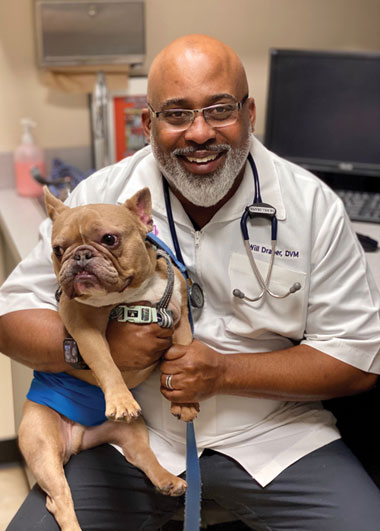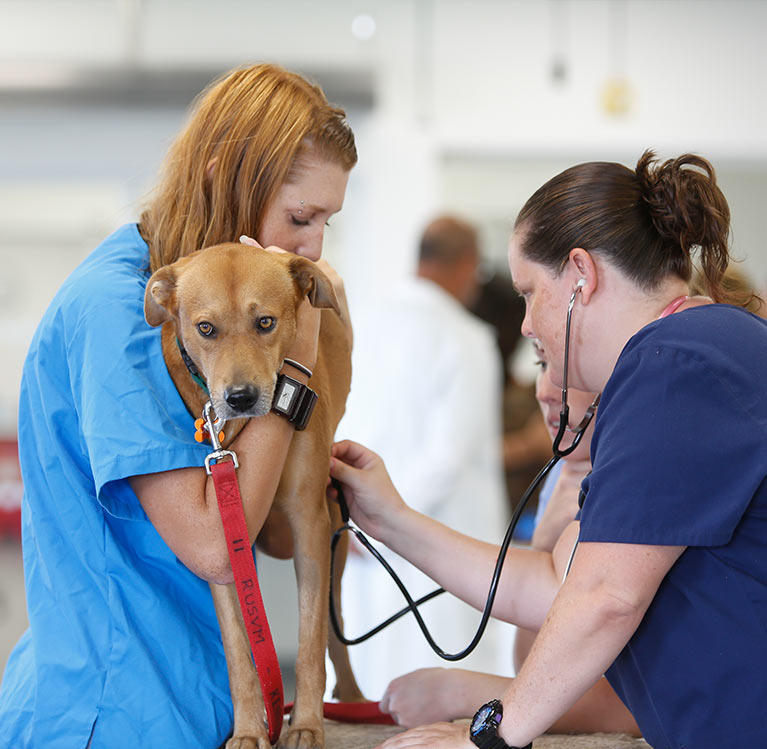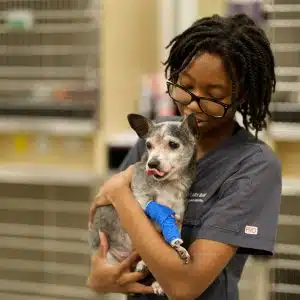The Value of Early Detection: Insights From a Vet Oncologist
Early discovery of cancer in animals is an important topic for pet dog proprietors and veterinary professionals alike. Vet oncologists highlight the significance of recognizing refined indications that may show severe health and wellness issues. Usual signs frequently go undetected up until they rise. Comprehending these very early warning indications and advancements in diagnostic strategies can make a substantial difference. What actions can animal proprietors take to boost their animals' chances of very early diagnosis and far better treatment end results?
Comprehending Cancer Cells in Animals: Usual Types and Signs And Symptoms
While lots of pet proprietors may not recognize it, cancer cells is a considerable wellness worry affecting animals, just like it does in human beings. Common kinds of cancer cells in animals consist of lymphoma, mast cell growths, osteosarcoma, and mammary lumps. These malignancies can materialize in numerous ways, depending upon their area and type. Signs usually include unusual weight-loss, relentless throwing up, changes in hunger, or uncommon lumps and bumps. Family pets might also display lethargy, trouble breathing, or hesitation to exercise, which can suggest underlying health and wellness concerns. Early signs can be subtle, making it vital for pet dog proprietors to be observant of their animals' habits and physical problem. Recognizing these typical types and associated signs and symptoms can encourage owners to seek veterinary care immediately, possibly leading to earlier diagnosis and treatment options. Identifying the indications of cancer cells in pet dogs is a vital step towards improving their health and lifestyle.
The Function of Veterinary Oncologists in Early Detection
Veterinary oncologists play a vital function in the early detection of cancer in animals, as their specialized training equips them with the skills required to identify subtle indicators that might be forgotten by basic experts. They make use of a mix of scientific experience and progressed diagnostic tools to assess patients extensively - Veterinary Oncology Services. By acknowledging early signs and symptoms and threat aspects, oncologists can direct pet proprietors towards timely treatments, boosting the possibilities of successful therapy
Additionally, veterinary oncologists often team up with family doctors to create screening procedures tailored to details breeds or age teams, improving the effectiveness of very early detection initiatives. They enlighten animal proprietors on the importance of regular exams and understanding of adjustments in behavior or physical problem. Through these positive measures, veterinary oncologists substantially contribute to boosting outcomes for family pets detected with cancer, highlighting the critical nature of their function in vet healthcare.
Breakthroughs in Diagnostic Techniques for Pet Cancer
Developments in analysis methods have actually markedly enhanced the ability to discover cancer cells in family pets at earlier phases. Strategies such as innovative imaging, consisting of MRI and CT scans, give detailed internal views, allowing vets to identify tumors that may not be palpable. Additionally, the development of minimally intrusive treatments, such as great needle aspirates and biopsies, makes it possible for exact tasting of tissues for histopathological examination with minimized anxiety for click to read the animal.
Emerging molecular diagnostics, including hereditary screening and biomarker recognition, are transforming the landscape of veterinary oncology. These methods can recognize details cancer cells types and predict responses to therapy, helping with individualized treatment plans. Furthermore, advancements in laboratory strategies, such as fluid biopsies, are beginning to offer non-invasive alternatives for checking growth progression and therapy effectiveness. Jointly, these advancements represent a substantial leap onward in veterinary medicine, highlighting the crucial duty of early discovery in enhancing outcomes for family pets diagnosed with cancer cells.
How Pet Dog Owners Can Acknowledge Indication
Just how can animal proprietors become cautious in acknowledging possible indication of cancer? Understanding of physical and behavioral modifications in pets is necessary. Common signs consist of unusual lethargy, anorexia nervosa, or sudden weight modifications. Pet owners see must also take notice of relentless throwing up or looseness of the bowels, which might indicate underlying problems.
Modifications in the skin, such as swellings, bumps, or sores that do not recover, call for prompt veterinary focus. In addition, owners should note adjustments in alcohol consumption practices, increased urination, or problem in breathing. Unusual hopping or pain might also be signs of more severe problems.
Normal vet exams can help identify these warning indications early. By keeping a close monitoring of their pet dogs' wellness and behavior, proprietors can play a key role in early detection, potentially leading to better outcomes ought to cancer be diagnosed. Recognizing these signs may significantly impact an animal's quality of life.
The Impact of Early Discovery on Therapy End Results
Early discovery of cancer in animals plays a necessary function in identifying treatment outcomes, as it often permits a wider series of healing alternatives. When cancer cells is identified in its onset, vets can carry out less invasive therapies, boosting the possibility of successful treatment. Early-stage cancers may additionally react better to chemotherapy or radiation, bring about enhanced survival rates and total lifestyle for the animal.
Additionally, punctual diagnosis facilitates an extra tailored therapy plan, straightening with the certain needs of the pet. This can include personalized medication routines or surgical interventions that are much less hostile. Alternatively, late-stage detection often leads to limited options, a lot more hostile therapies, and poorer diagnoses. The significance of very early detection can not be overemphasized; it essentially modifies the trajectory of treatment, making it critical for family pet owners to continue to be watchful for any indications of illness in their beloved companions.
Often Asked Concerns

How Can Diet Impact Cancer Cells Danger in Animals?
Diet regimen significantly affects cancer cells risk in family pets, as specific nutrients and food types can either prevent or advertise lump growth. A balanced, nutrient-rich diet may assist lower the probability of establishing cancer in animals.
Are Particular Types A Lot More Prone to Cancer cells?
Certain pet types, such as Golden Retrievers and Boxers, exhibit higher cancer sensitivity because of genetic tendencies. Some feline types additionally reveal raised cancer dangers, highlighting the value of breed-specific wellness awareness among pet proprietors.

What Are the Prices Connected With Very Early Cancer Detection?
The expenses linked with very early cancer cells detection can differ considerably, incorporating analysis tests, appointments, and potential treatments - Veterinary Cancer Specialist. Purchasing these services commonly causes better health end results, eventually saving on a lot more considerable future clinical costs
Can Injections Avoid Cancer Cells in Pet Dogs?


Vaccines might minimize the risk of certain cancers in animals, especially those connected to viral infections. Nevertheless, their efficiency differs, and family pet owners need to consult vets for tailored suggestions regarding inoculation and cancer avoidance methods.
Exactly How Often Should Family Pets Be Evaluated for Cancer?
Animals must generally be evaluated for cancer annually, particularly as they mature or if they show threat variables. Regular vet exams can assist identify prospective issues early, improving therapy results and general wellness monitoring.
Early discovery of cancer in family pets is a crucial subject for animal proprietors and veterinary experts alike. Early signs can be refined, making it crucial for pet dog owners to be observant of their animals' habits and physical condition. Vet oncologists play a crucial function in the early discovery of cancer in family pets, as their specialized training furnishes them with the skills needed to recognize refined signs that might be overlooked by basic practitioners. By preserving a close observation of their family anchor pets' wellness and behavior, owners can play an essential role in early discovery, potentially leading to far better end results need to cancer be diagnosed. Early discovery of cancer in family pets plays an important role in determining treatment results, as it frequently allows for a broader range of restorative alternatives.